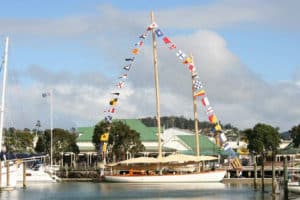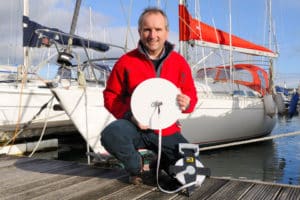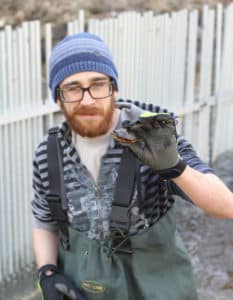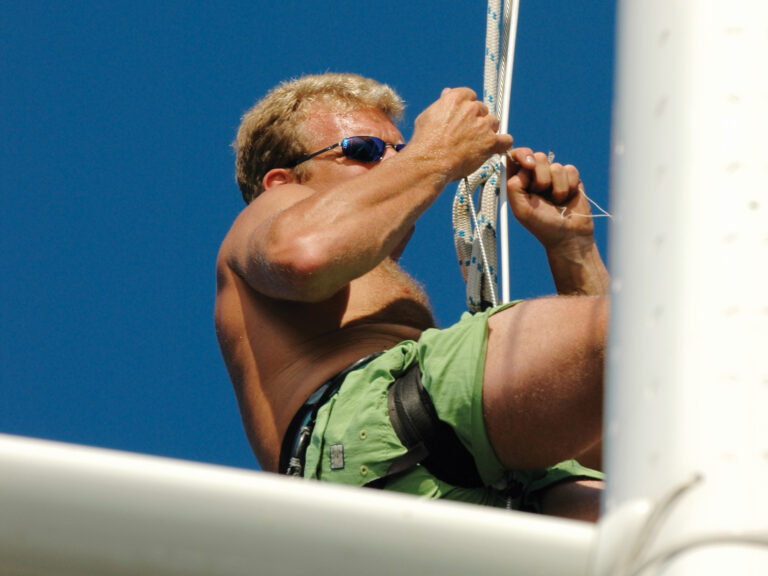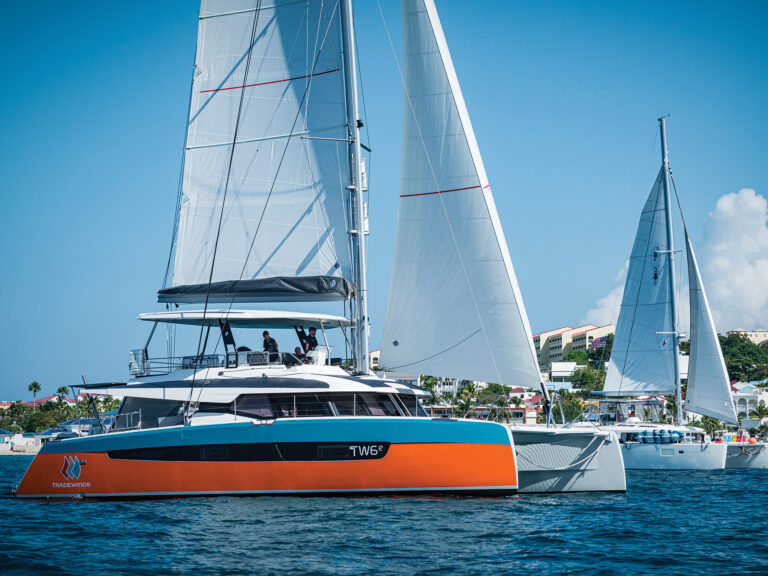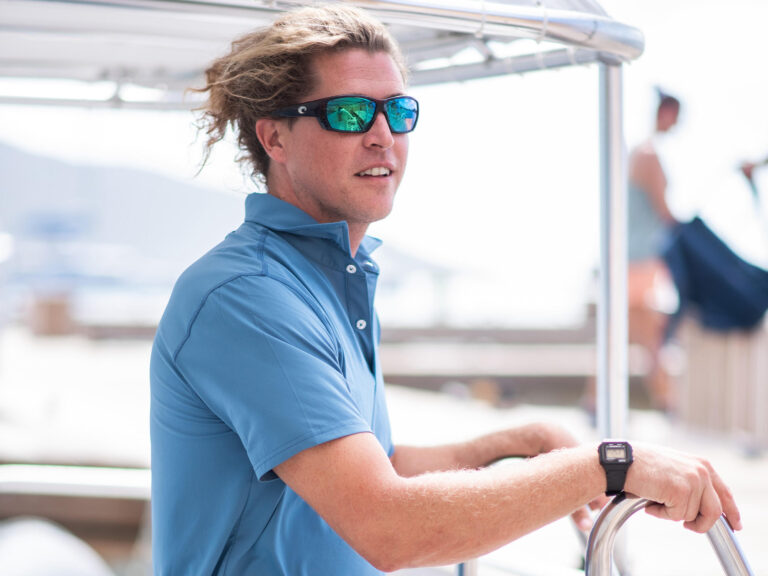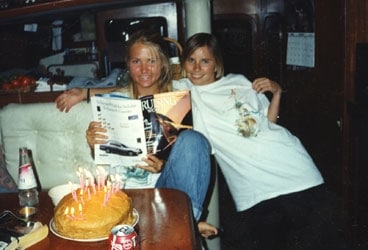
Short Story 368
I was 9 years old the first time I realized that I’d always crave going somewhere new. I remember standing on the limestone rocks by the water on Great Exuma, in the Bahamas, and looking out toward where the Turks and Caicos and many other islands sat just over the horizon. I had the feeling of being a permanent tourist, an adventurer who was off to discover new lands, and I swore then and there that someday I’d get my own boat so I could go where I wanted. I’d grown quite tired of going to the same places every year.
At 9, I was way too young to feel this kind of latitudinal repression. But that didn’t change the fact that I wanted more. From the time I was 5 until I turned 15, my liveaboard family did the same thing every year: We’d spend the summers in the Chesapeake, where we’d take care of such business as going to the doctor and the dentist, seeing family, and getting Chez Nous, our Gulfstar 47, hauled out for the occasional bottom-and-blister-job. Then, in the fall, we’d head down the Intracoastal Waterway to Florida, where we’d wait for a weather window to hop over to the Bahamas. It was the most routine cruising lifestyle you could imagine, and, in a way, it was the very routine that made it work.
Then the unthinkable happened: My dad, Tom Neale, who’d managed to extricate himself from his law practice to the point that he hadn’t actually worked in an office in 10 years, went back to work. Of course, as he’d be the first to tell you, he’d never actually stopped working. Maintaining a sailboat to keep it safe for a family of four required many hours of labor, and he’d relentlessly written and submitted articles to various magazines in whatever time he wasn’t spending on the day-to-day chores of cruising. He’d written a cruising guide to Chesapeake Bay, done the boat-show circuit, and published all over the place.
His biggest writing gig to date came his way in 1995, but it would require a major sacrifice. He’d be taking over Cruising World’s On Watch column-and that meant that he’d be going into the office in Newport, Rhode Island, five days a week during that summer and every summer after that for an indefinite amount of time. My dad would have to start doing things like wearing shoes, combing his hair, and putting on a collared shirt every day.
In late June of that year, we made the journey through the Chesapeake & Delaware Canal, crossing what had been our northernmost boundaries and entering waters that were entirely new to us. Delaware Bay was hazy and had strong current, and we passed through it as quickly as we could; we stopped first in Atlantic City, then again to see New York City by water. We moored at the 79th Street Boat Basin, where we could dinghy ashore and walk to Central Park. We passed through Long Island Sound and finally arrived in Rhode Island. We spent the first summer on a mooring off downtown Jamestown, on Conanicut Island, which lies across Narragansett Bay from Newport.
The Jamestown mooring field was small and quiet, and it gave us a good view of Newport from a distance. Our first week there, my parents invited the entire Cruising World editorial team out to the boat for a cocktail party. One of the attendees was Tim Murphy, who would, over the next few years, become one of my closest friends. He was the first adult that I met who’d grown up, like me, on board a boat. I remember saying to him, “I want to know how you felt about growing up aboard. And how do you feel about it now that it’s over and you’re living ashore?”
What I’d really wanted to ask him about was something that I’d only just started putting into words for myself. Did he feel like he had a home, or was he rootless and compelled to keep traveling, which was how I felt sometimes?
“I wanted to keep doing it,” he said to me. “I didn’t want to go to college or move ashore.”
“Then why did you?”
“I don’t know. Circumstances. I changed. That happens, you know.”
And for the next four summers, Newport would gradually change me from someone who only knew one way of life to someone who understood what it meant to live like everyone else. My first “real” summer job-up till then, I’d always worked here and there detailing boats, doing odd jobs, and selling artwork-was working at Cruising World stuffing envelopes, alphabetizing the library, and sitting in random cubicles to do work that was painstakingly boring. During that time, I read every article that the magazine published and kept dreaming about owning my own boat someday and pushing the boundaries of where I’d ventured.
Circumstances have changed me, too. I live on land now, and my travels are limited by the capabilities of a 19-foot trailerable sailboat and the constraints of your average 45-hour workweek. But I believe that there are still new places for me to see. You just have to turn your gaze to your boundaries, identify whether they’re near or far or perhaps the form that they happen to take, then press to exceed them. My husband and I are planning a weekend trip to Lake Okeechobee soon, and that, you see, is a place where I’ve never sailed.
Florida resident Melanie Neale works for the Art Institute of Fort Lauderdale.

